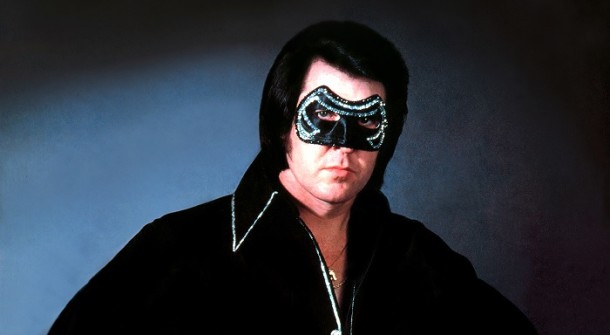 Few entertainers are so uniquely and supremely talented that they can arrive on the scene as something original. Most others are presented as the “next [blank].” Orion: The Man Who Would Be King tells the story of a man with the right talent at the wrong time. This documentary follows the heartbreaking career of Jimmy “Orion” Ellis, a man born with exceptional talent, except that his talent was too much like the talent of one of the most famous men on the planet.
Few entertainers are so uniquely and supremely talented that they can arrive on the scene as something original. Most others are presented as the “next [blank].” Orion: The Man Who Would Be King tells the story of a man with the right talent at the wrong time. This documentary follows the heartbreaking career of Jimmy “Orion” Ellis, a man born with exceptional talent, except that his talent was too much like the talent of one of the most famous men on the planet.
While in high school in the early 1960s, Ellis’ classmates recognized his talent for singing – except that his singing voice sounded extraordinary like that of the King of Rock and Roll, Elvis Presley. Though early in his music career Ellis tried to be his own man, with his voice sounding almost exactly like Elvis’ he was never taken seriously. It wasn’t until Elvis died in 1977 that Ellis’ voice became valuable – with Shelby Singleton, the sleazy new owner of Sun Records (the legendary record label that discovered Elvis) enlisting Ellis in one of the most shocking pop music gimmicks in history: Orion, the mysterious performer who might just be Elvis back from the dead.
The Orion character became an extension of the flashy cult of Elvis that the King’s death only amplified. While wearing a domino mask, Ellis would perform as if he were Elvis back from the dead. Though he clearly wasn’t Elvis – his jawline didn’t match Elvis’, he was significantly taller, and had different color eyes – fans still flocked to his “back from the dead” concerts.
On one hand, you can look at Ellis as little more than an impersonator who took his act too far. On the other, it’s worth asking what he was supposed to do when his singing voice was so similar to the most famous voice in pop music? He wanted to be a rock star, and nobody was interested in a country singer named Jimmy Ellis. Being Orion at least made Ellis money, and because Singleton didn’t pay Ellis royalties on record sales it wasn’t even as much as he should have made. Various acquaintances of Ellis, including his son, talk about how Ellis only did what he did to make a living. While Ellis has undeniable talent, his songs were mostly songs that had already been done by Elvis.
Director Jeanie Finlay includes the most significant people in Ellis’ life in this documentary, who all paint Orion as more than just an Elvis impersonator. Instead, the audience is told about how Ellis grew up an orphan – and it touches upon some jaw-dropping rumors regarding Ellis’ possible father – and how that and his unappreciated talent affected the rest of his life. While I was surprised to learn just how big Orion was in the late 1970s and early 1980s, I was interested to find out if there were any remnants of Orion-mania in recent years, but the documentary doesn’t touch on that. My only other criticism was how Finlay utilized completely unrelated footage – like clips from a modern high school football game – in the first half of the film. I realize that Ellis’ career wasn’t as documented as Elvis’ was, but this seemed like an odd choice for sequences set in the 1960s.
The old saying goes that 50,000,000 Elvis fans can’t be wrong. Jimmy Ellis might not have even had one percent the amount of the fans at the height of his popularity, but that doesn’t mean he isn’t a compelling figure in the history of pop music gimmicks. Although there isn’t too much here that describes how much impact the Orion swindle had on pop music post-Elvis, the documentary as a whole is a fulfilling exploration of one of the oddest stories in music history.
















Recent Comments